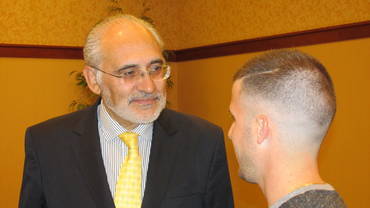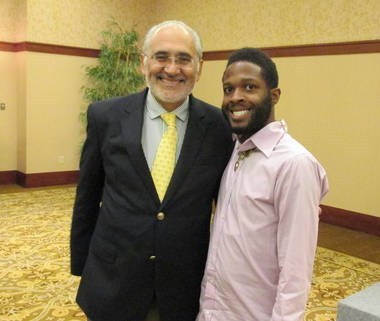On Sept. 12, 2014 former Bolivian president and vice president, from 2003 to 2005 and 2002 to 2003 respectively, Carlos Mesa visited the Inn at Penn, located on the University of Pennsylvania's campus, to deliver a speech on the future of Latin America. The speaking engagement was followed by a question and answer session.
The event was sponsored by the Penn: Program on Democracy, Citizenship, and Constitutionalism, political science department, La Casa Latina, and the Latin America and Latino Studies Program. The event was headed by event coordinator Matthew Roth of the University of Pennsylvania's School of Arts and Sciences.
"There are different steps in the growth and transformation in society that we can consider irreversible," globalization being one of them. Of particular importance to Mesa, is the nationalization of mineral deposits and fair and free trade. He spoke of the migration of educated individuals out of Latin America as a consequence of globalization.
He asserted that neo-liberalism which shares many commonalities with socialism is not a reaction to communist Russia, but instead a reaction to the failure of capitalism in Latin America. "We are in a Latin America that is post neo-liberal," he stated. He is not unaware of the assumptions that come with the word neo-liberal and quickly clarifies his statement stating, "At no time have the countries of ALBA been near the path of socialism." Rather, he states, "We (Latin America) are in a position of socialism that is leaning to the left, but is not radical." He insured his audience that a socialist economy is not necessarily linked to a communist political system. He predicted that the future of democracy in Latin America will, "suffer neither to the left or the right."
Mesa was asked about Latin America's ability to develop a transnational model similar to that of the EU. He responded, "I have no doubt," that Latin America can achieve this. However, he does list several obstacles to the unification of Latin America through trans-national agreements including partisanship preventing economic cooperation.
"The War on drugs has been a failure." "The consequences of American trafficking, drug trafficking, is quite devastating." He asserts that the mafias in many Latin American countries are more powerful than their respective national governments. This is a threat to its constituents and democracy.
"The first issue of Latin America is the lack of security of citizens." He speaks about the effect that American drug policy, specifically in California, could have on neutralizing the effects of the drug market on Latin American governments. "If California were to legalize marijuana, the American government would change its reasoning to drugs around the world."
"Where are we (Latin America) and where are we going?" questions Mesa. Its development is hinged on the approaching election cycles. "The most important election of all is in Brazil," he states. He characterizes Marina Silva, a candidate in Brazil's next presidential election as, "unpredictable." As for Bolivian elections, Mesa's bet is on the presidential victory of Evo Morales, the current president of Bolivia seeking a third term. Overall, Mesa describes his position towards the future of Latin America as, "optimistic."


